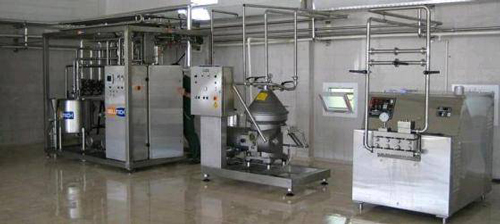What is ULT technology?
We know that just out of the milk may contain pathogens, which should not be directly consumed, you must go through the sterilization process. The traditional method of sterilizing milk is pasteurization, which is named after the famous microbiologist Pasteur. It kills pathogenic bacteria by the use of relatively low temperature, the common treatment is 68 ℃ for 30 minutes or 72 ℃ for 15 seconds. Pasteur milk can better maintain the original nutrition and flavor of milk, but there are also some problems. The main one is that although it can kill pathogens, it is not enough to kill all bacteria. Therefore, its shelf life is very short, usually only about 7 days, and the need for refrigeration.
ULT technology: Ultra high temperature treated
In order to solve the problem of short shelf-life of pasteurized milk, ultra high temperature treated technology (UHT) came into being. UHT technology through the instantaneous ultra-high temperature sterilization of 135-150 ℃, 4-7 seconds, combined with aseptic packaging, produced milk can be stored at room temperature for more than six months. UHT normal temperature milk and pasteurized milk have little difference in the nutritional composition, especially in the calcium and protein supplements, almost no difference between the two. Given the tremendous advantages of warehousing and shipping, the use of UHT technology enables products from premium sources to be enjoyed by a wider consumer base.
What are the nutrients in the milk?
One of the foods with the highest nutritional value of milk and dairy products is also difficult to replace with any other food. All mammals rely on milk to provide the body's nutrients during the first stages of life. Milk and dairy products are the important part of the diet of residents in many countries. Among them, the milk produced by dairy cows is an absolute advantage of commercial dairy products.
What is the nutritional value of milk?
(1)Calcium
Calcium is abundant in milk and is easily absorbed by the body, so it is the best source of natural calcium in the diet. Ensuring adequate calcium intake helps bone formation and maintains strong, healthy bones and teeth, helps to maintain normal and stable blood pressure and plays an important role in regulating the excitability of the muscles and nervous system.
(2)Protein
The protein content in milk is relatively constant, about 3.0%-3.5%. In terms of protein composition, casein accounts for about 80%, whey protein accounts for about 20%. The protein in milk is a high quality protein which is easily digested and absorbed by the human body. Milk protein provides a variety of amino acids essential for human health, which possesses an important physiological role in promoting growth and development, increasing satiety (leaving you feeling full and lasting), and maintaining normal body weight, improving body immunity, and enhancing muscle development and recovery.
(3)Phosphorus
Necessary for strong bones and teeth. At the same time, it is the basic component of biological macro-molecules such as nucleic acids and proteins involved in important metabolic processes in the body.
(4)Potassium
It can help maintain the normal metabolism of sugar and protein, cell osmotic pressure and acid-base balance, promote myocardial function, and lower blood pressure.
(5)Magnesium
Magnesium contributes the absorption of calcium, is an important part of the mineral structure of bones and teeth. It plays an important role in maintaining neuromuscular excitability and gastrointestinal function, and reducing the risk of diabetes and cardiovascular diseases.
(6)Zinc
Helping growth and wound healing. For the promotion of gastrointestinal function, improving immunity is very important.
(7)B vitamins
Milk is a good source of B vitamins. B vitamins help promote energy metabolism, as well as eye and skin health. In addition, it plays an important role in maintaining normal physiological functions of nerves and immune system.
(8)Vitamin A
It promotes skin health and is important for improving vision and immune function.(9)Vitamin D
Vitamin D can promote the absorption of calcium, contribute to the health of bones and teeth. The latest study found that vitamin D is also closely related to the risk reduction of diseases such as diabetes, cardiovascular diseases, depression and cognitive dysfunction.



-lp.jpg)

